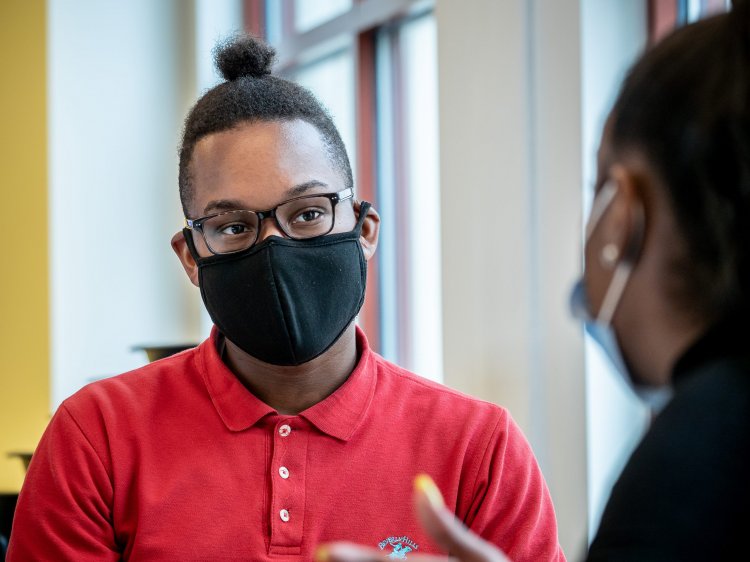Montclair State University issued the following announcement on Oct. 1
Face coverings and social distancing are two measures that have allowed for a limited reopening of society in the face of the global COVID-19 pandemic.
But what do you do when you come across people who aren’t wearing their masks (or aren’t wearing them properly) or don’t keep their distance?
How do you confront them without getting punched in the face?
“That’s the tricky part,” says Coordinator of Health Promotion Marie Cascarano, who helps oversee the student-staffed Community Health Ambassador program.
Community Health Ambassadors are empowered to enforce University policy and are trained to identify themselves when they approach somebody on campus about mask-wearing and social-distancing.
“The outside world is a whole other thing,” says Cascarano.
In that case, she advises against confrontation and instead recommends controlling what you can – your own behavior.
“If you are in an establishment and see someone without a mask, I’m like Pac Man avoiding the ghost. I bolt the other way,” Cascarano says. “Go to management or, if it’s a large chain, go online to report the behavior.” If the behavior is continually lax and egregious, contact your local board of health.
Professor of Public Health Amanda Birnbaum explains that confrontation can backfire: “We have decades of evidence in health behavior research that knowledge alone is not enough to change behavior. So in the heat of the moment, it’s unlikely that explaining to someone why they should mask up or distance will be effective.”
Instead, Birnbaum recommends considering when it’s important to approach someone.
“If you’re crossing paths with someone, especially outdoors, but even in a large classroom building hallway, that might not be a time when it’s important to give unsolicited advice about mask-wearing. On the other hand, if you’re in an indoor setting, or even an outdoor setting where you are going to be within six feet of someone for 10 minutes or more, that’s the time to mobilize.”
Appeal to their empathy, says Professor of Public Health Stephanie Silvera.
“If you are with someone and they are not wearing a mask, particularly if you are indoors, you could appeal to their sense of community by asking them to wear a mask, or wear their mask properly, by noting that you are wearing one because you care about their health and you’d like them to do the same to protect you.”
Silvera also advises that forewarned is fore-armed in a social setting: “If you are planning on having people over, whether inside or outside, it is helpful to let everyone know upfront, what your expectations are regarding mask wearing. Then your guests have the choice to come, or not.”
Tone is important, too. “What we know from health behavior research is that messages are most effective when they are respectful, empathetic and specific,” says Birnbaum. “So instead of, ‘hey buddy, mask up!’ try something like, ‘I know masks are awkward’ or ‘I’m sweating in my own mask.’ And then make a respectful request.”
Cascarano agrees that “public shaming or bullying clearly is not going to work and that could escalate the situation.”
“As we’ve said to the students who are CHAs: don’t put yourself at risk.”
Original source can be found here.

Source: Montclair State University




 Alerts Sign-up
Alerts Sign-up